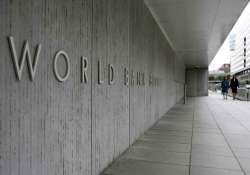World Bank wants more transparency in India's power subsidy
Mumbai: World Bank today called for more transparency in India's power subsidy regime and suggested re-identification of the target population to improve the balance-sheets of losses-stricken discoms. The global development finance body said the key

Mumbai: World Bank today called for more transparency in India's power subsidy regime and suggested re-identification of the target population to improve the balance-sheets of losses-stricken discoms.
The global development finance body said the key sector should be allowed to operate in a commercially viable manner by making sure that who are not eligible for subsidy pay for what they consume.
“Whoever is supposed to get the subsidy, the state should transparently give that amount and burden should be on the officers concerned to demonstrate they have responsibly handled that amount of subsidy,” World Bank Senior Energy Specialist Mohua Mukherjee told reporters here.
There is a lack of transparency in the power subsidy regime in India at present and therefore we should re-look at those who truly require state support and accordingly, allocate budget for the same, she maintained.
Mukherjee, however, parried a question on the viability of the almost-free power promise made to the lower-end consumers in Delhi by the new AAP Government. In a report on the power sector released here today, the World Bank identified the customer-facing distribution companies as the vertical that needs attention.
At present, the industrial and commercial users cross-subsidise by paying more for their power usage, which should be avoided to the extent possible, she said.
Mukherjee said the sector should be allowed to operate in a commercially viable manner by making sure who are not eligible for subsidy pay for what they consume.
Such an approach can lower the subsidy burden on the Government. With the sector receiving two bailouts in the last decade, the global body asked banks to pull up their socks and critically look at every loan proposal from power sector firms, without the back up of a sovereign guarantee.
Such a practice will ensure that the sector does not lose sight of commercial interests, the report said.
The World Bank lauded Maharashtra, saying it is one of the states where the power scenario is managed better which is visible in low power deficit, higher per capita consumption than the national average and timely tariff revisions.
At the same time, the state is also plagued with the policy of cross-subsidisation where industrial consumers are suffering, it said and added this needs to be remedied.